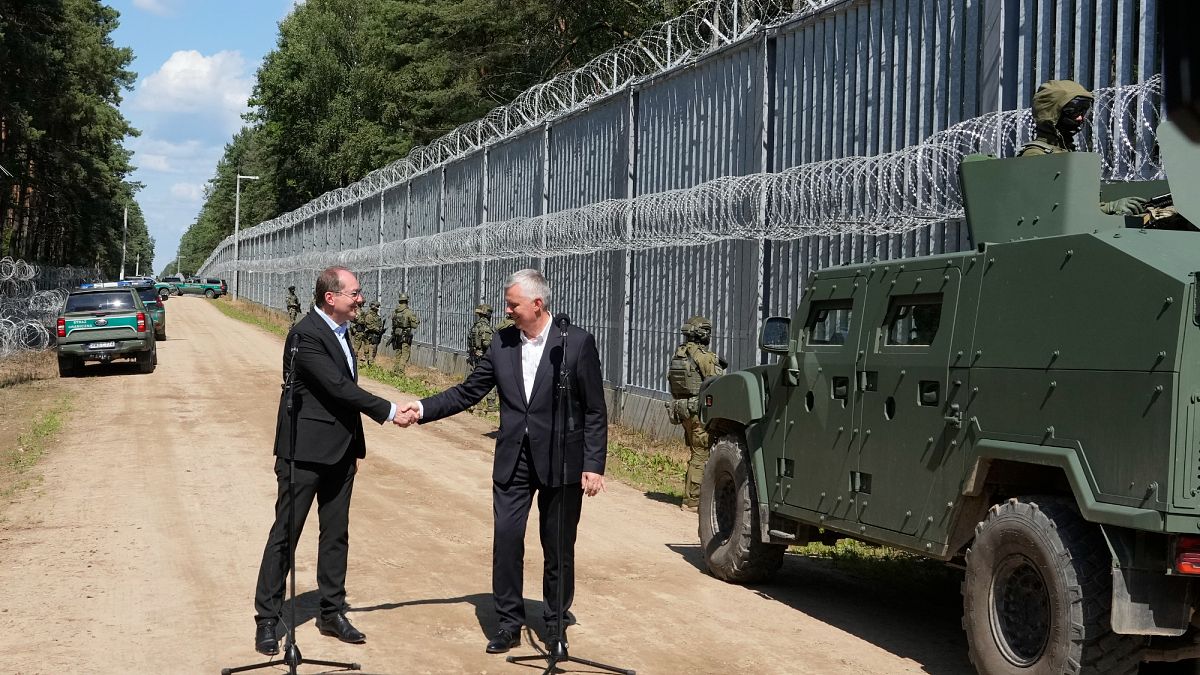

As the world continues to navigate through complex geopolitical landscapes, several significant events have taken center stage across the globe, each bearing its implications and opportunities for change. From Europe to Asia, nations are addressing challenges, fostering dialogues, and making crucial decisions that may shape future international relations.
In a recent move illustrating cooperation in the European Union, Germany has expressed robust support for Poland’s measures aimed at curbing migration from Belarus. German Interior Minister Alexander Dobrindt underscored the importance of this partnership, defining Poland as Germany’s most pivotal ally within the EU, alongside France. The Polish-Belarusian border has become a focal point for migration in Europe, necessitating effective strategies to manage the influx and ensure orderly and humane treatment of migrants. This collaborative spirit between Germany and Poland demonstrates a shared commitment to address regional challenges with unity and purpose.
Meanwhile, further to the east, hopes for conflict resolution have flickered as Ukraine and Russia prepare for another round of peace talks in Turkey. As these discussions hold the potential to ease hostilities, Ukrainian President Volodymyr Zelenskyy remains cautiously optimistic despite ongoing tensions. Russia’s intensification of long-range drone attacks poses a stark challenge, yet the upcoming negotiations offer an avenue for dialogue and possible amity. The international community watches with anticipation, yearning for steps toward peace in a region deeply marked by strife.
Simultaneously, cultural spheres in Europe have witnessed the impact of geopolitical affiliations, as illustrated by Italy’s decision to uninvite Russian conductor Valery Gergiev from a classical concert in Caserta. Known for his strong ties to President Vladimir Putin, Gergiev’s exclusion from the event has been praised by Kremlin critic Yulia Navalnaya and Ukrainian associations in Italy. This move reflects the broader cultural responses to political alliances, underscoring how artistic platforms can become arenas for expressing solidarity and political dissent.
Across the continent in Asia, Japan faces its own political shifts as Prime Minister Shigeru Ishiba navigates a challenging landscape following his coalition’s loss of the upper house majority. Despite the setback, Ishiba vows to continue his leadership, striving to negotiate crucial deals, notably to avert looming tariffs from the United States under former President Donald Trump. The election results, while indirectly affecting Ishiba’s position, signify a growing right-wing populist movement within Japan, presenting both challenges and opportunities for negotiation and collaboration with global partners.
These current events highlight the interconnectedness of global politics and the diverse strategies nations employ to navigate their respective challenges. Whether through diplomatic engagements, cultural expressions, or political resilience, each of these developments reflects a broader narrative of nations striving for stability, cooperation, and peace. As the world continues to evolve, these efforts offer glimmers of hope for progress and understanding in our shared global landscape.
Source: {link}
